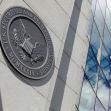Douglass Mackey was arrested Wednesday, January 27, 2021, after a Federal Bureau of Investigation complaint found Mackey to be the main contributor behind a disinformation scheme to interfere with the 2016 Presidential Election between former Secretary of State Hillary Clinton and Donald Trump. Mackey, also known as Ricky Vaughn, opened numerous Twitter accounts between September and November 2016 to spread disinformation and memes that either gave disinformation on how to legally vote or to influence which candidate to vote for.
Mackey is charged with one count of violating Title 18 of the United States Code section 241. An investigation revealed he “conspired to injure, oppress, threaten and intimidate persons in the free exercise and enjoyment of a right and privilege secured to them by the Constitution.” Mackey faces up to ten years in prison for his involvement in interfering with the 2016 Presidential Election.
Leading up to the 2016 election, Mackey made at least four Twitter accounts using the alias Ricky Vaughn to produce and spread content targeted at citizens intending to vote for the Democratic candidate, Secretary of State Hilary Clinton. Through those accounts, Mackey participated in group messages through Twitter and Facebook to design graphics and content to spread disinformation on candidates and their constituent base.
Mackey, along with other co-conspirators, designed, spread, and timed graphics, mostly in the form of “memes,” that indicated voters were able to vote for their candidate through social media. They spread “hashtags” and specific telephone codes that a voter could, and should, text to cast their vote, instead of voting in a registered voting place. They falsely claimed that either texting these codes or simply tweeting messages with certain hashtags was the equivalent of legally voting. According to the FBI investigation, more than 4,900 people cast their vote via text.
In another tactic, Mackey and co-conspirators produced disinformation campaigns claiming celebrities were “closeted” Republicans who intended to vote for the Republican candidate, Donald Trump. These graphics gave the impression that certain celebrities had been “hiding their desire” to vote for the Republican candidate, breaking with their past voting history. Mackey “expressed a desire that the memes would influence the behaviors of those who saw them” and to change their voting from the Democratic to the Republican candidate.
Mackey started with just one Twitter account and amassed nearly 58,000 followers by the time Twitter suspended the account in early October 2016. According to the MIT Media Lab, that account ranked 107th most influential regarding the 2016 election. In comparison, news outlets and other famous individuals such as Stephen Colbert and Newt Gingrich, ranked 119th and 141st, respectively.
Twitter suspended Mackey’s first account for violating its terms of service, specifically for “participating in targeted abuse.” Just days later, an associate of Mackey opened another account in the name of Ricky Vaughn and transferred all control to Mackey. The second account was almost identical to the first, including its profile picture. Nearly one month later, the account had gathered nearly 9,000 followers by the time Twitter also suspended the second account. But just one day later, Mackey, or an associate, opened a third account, which was suspended just days before the 2016 Election.
Twitter and Facebook have come under Congressional fire recently for their terms of service, responsibilities, and rights to curtail political disinformation campaigns on their platforms. According to Section 230 of the Communications Decency Act, these platforms are not held responsible for the content their users publish. While each platform does enforce its terms of service to regulate misinformation, inciting of violence, and other crimes, they are largely self-regulated and are not legally liable for the content produced on their platforms.
Late last week, Gina Raimondo, in her hearing on her nomination for Commerce Department Secretary, spoke about her intention to pursue changes to Section 230 if confirmed. She stated, “I think platform accountability is important because I’ve seen in my own state [of Rhode Island] that misinformation hurts people.”
While Twitter and Facebook did not create or inspire the disinformation spread by Mackey and his co-conspirators, they provided a platform that is widely accessible to the U.S. voting-age population. This case brings yet another aspect of the debate on the future of Section 230, potentially bringing more governmental regulation into the social media platforms, pushing creators further underground, or creating policy to censor information produced.






